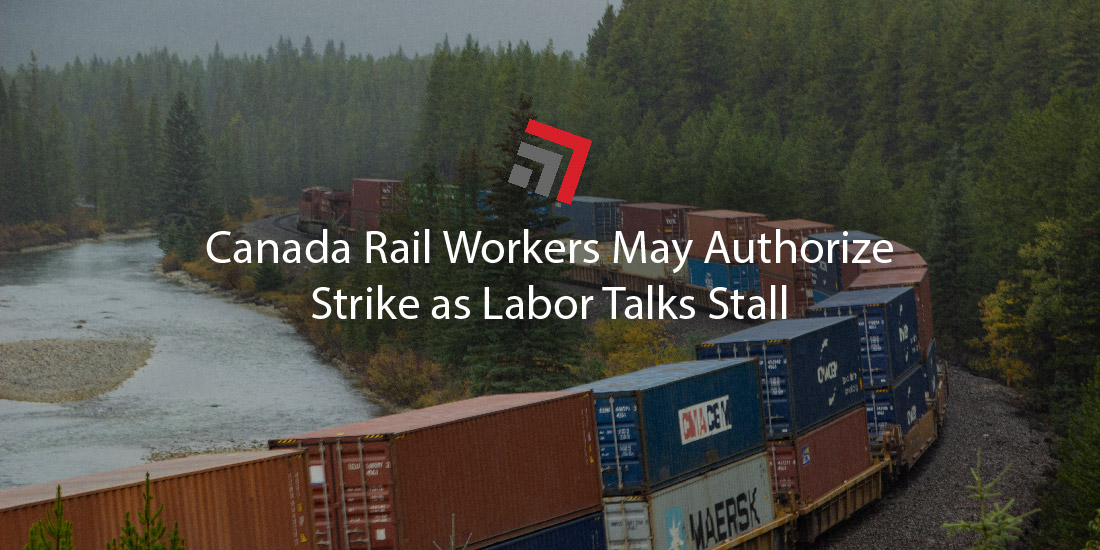A strike may occur across Canada’s rail network as early as late May. Unionized rail workers employed by Canada’s two Class I railroads are set to vote in the coming weeks on whether to authorize the labor action which would stymie intermodal freight movement in the country. The looming disruption comes as negotiations for new labor agreements are at an impasse.
The workers, represented by Teamsters Canadian Rail Conference (TCRC), will vote from Apr. 8 to May 1. If their ballots are in favor of picketing, a strike across Canadian National’s and Canadian Pacific Kansas City’s networks could happen as soon as May 22.
If a work stoppage does occur, freight movement would grind to a halt. Intermodal service to and from the country’s marine terminals would be a troubling causality, as an inbound volume of 50,000 twenty-foot-equivalent container units per week would be affected, according to data analysis by the Journal of Commerce.
Union, railroads at a testy stalemate over new contract
TCRC and railways CN and CPKC have been tasked with renewing three collective agreements that cover nearly 9,300 employees of the railroads. So far, capturing a favorable deal has been futile for the two sides. Over the past few months, both the union and railroads have exchanged barbs, blaming the other side for failing to cooperate.
In February, TCRC published a scathing media release, claiming CN and CPKC were not taking the negotiations seriously. The union added that the railroads’ flippancy is essentially inviting a strike.
CN and CPKC retorted that they have extended fair terms, including wage increases and assigned days off. In an email to FreightWaves, a representative with CPKC blamed TCRC for “grossly” misrepresenting information regarding their proposals.
On Feb. 16, CN and CPKC filed notices of dispute with Canada’s labor ministry, seeking the assistance of a federal broker to mediate their negotiations. This filing is what initiated the possibility of a strike in the first place. Under Canadian law, a work stoppage may occur as soon as 81 days after a notice of dispute is filed. Hence, why a strike could happen May 22 if authorized by the workers.
Of the nearly 9,300 unionized rank-and-file workers, 6,000 are employed by CN, while 3,200 are employed by CPKC. Their body consists of conductors, yard coordinators, and train engineers. The previous collective agreements expired Dec. 31, however, under Canadian law, the agreements will remain in effect until the two parties reach new terms.
The federal mediator, appointed by Canada’s labor ministry upon the railroads’ February request, can broker a deal with the two parties up until May 1. Following this, a 21-day cool-off period is promptly activated, prohibiting a strike until May 22. In the event of a strike, TCRC would have to issue a notice to CN and CPKC 72 hours in advance.
Final Thoughts
2024 is shaping up to be an eventful year regarding labor uncertainty in Canada. At the Port of Montreal, the country’s second-largest container port, 1,300 unionized dockworkers are also at odds with their respective employers. While the negotiating parties have not been as vocal about their differences as TCRC and the railroads, there have been minimal assurances that their work towards a new contract has made significant progress. Similarly to Canada’s rail network, a shadow of strike action looms over the eastern Canada port.
Contact one of our team members if you have any questions regarding this topic or any others in domestic logistics.
More blogs similar to this:



Recent Comments